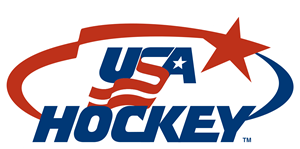Code Of Conduct
For Coaches
- Winning is a consideration, but not the only one, nor the most important one. Care more about the child than winning the game. Remember that players are involved in hockey for fun and enjoyment.
- Be a positive role model to your players, display emotional maturity and be alert to the physical safety of players.
- Be generous with your praise when it is deserved; be consistent, honest; be fair and just, do not criticize players publicly; learn to be a more effective communicator and coach; don’t yell at players.
- Adjust to personal needs and problems of players, be a good listener, never verbally or physically abuse a player or official; give all players the opportunity to improve their skills, gain confidence and develop self-esteem; teach them the basics.
- Organize practices that are fun and challenging for your players. Familiarize yourself with the rules, techniques and strategies of hockey; encourage all your players to be team players
- Maintain an open line of communication with your players’ and parents. Explain the goals and objectives of your association
- Be concerned with the overall development of your players. Stress good health habits and clean living.
- Be reasonable in your demands on the players’ time, energy and enthusiasm. Remember that they have other interests.
- Teach the players that rules of the game are mutual agreements, which no one should evade or break.
- Group players according to age, height, skill and physical maturity whenever possible.
- Avoid over-playing the talented players. The “just-average” players need and deserve their fair share of ice time.
- Remember that players are involved in hockey for fun and enjoyment and that winning is only part of it. Never ridicule or yell at the players for making mistakes or losing a competition.
- Ensure that equipment and facilities meet safety standards and are appropriate for the age and ability of the players.
- The scheduling and length of practice times and competitions should take into consideration the maturity level of the players.
- Develop team respect for the ability of opponents, as well as for the judgment of officials and opposing coaches.
- Follow the advice of a physician in determining when an injured player is ready to play again.
- Remember that players need a coach whom they can respect. Be generous with your praise when it is deserved, and set a good example on and off the ice.
- Make a personal commitment to keep yourself informed on sound coaching principles and the principles of individual growth and development.




